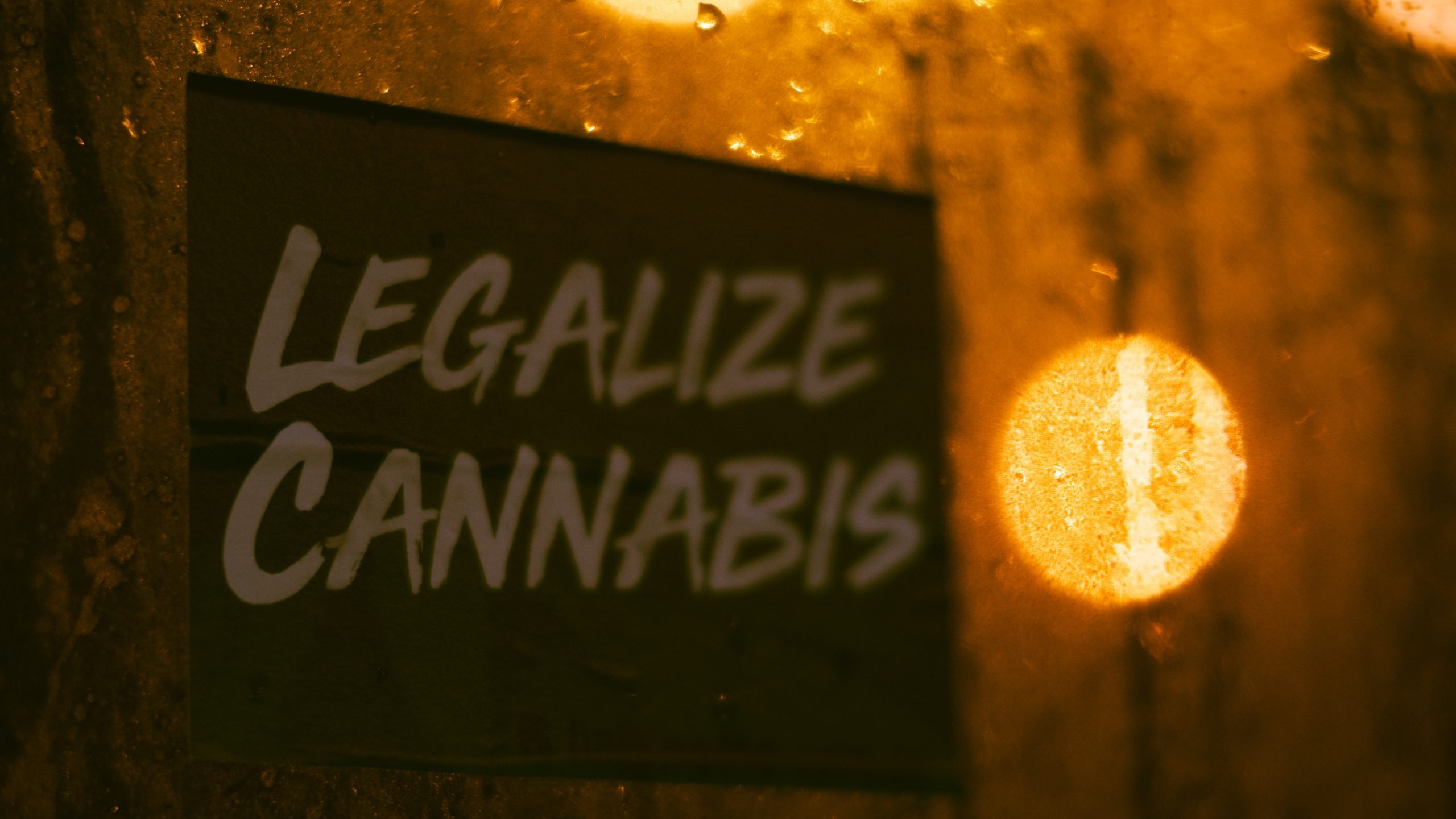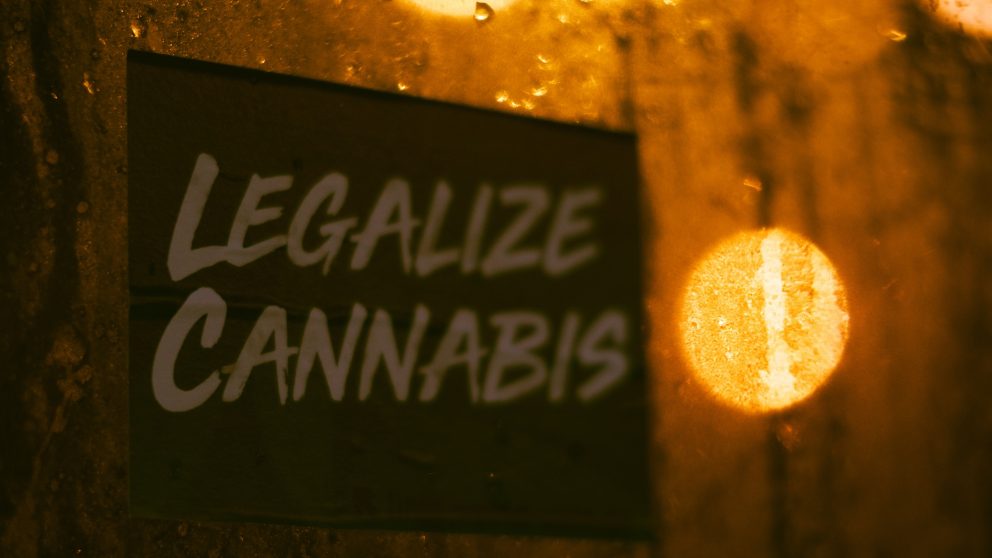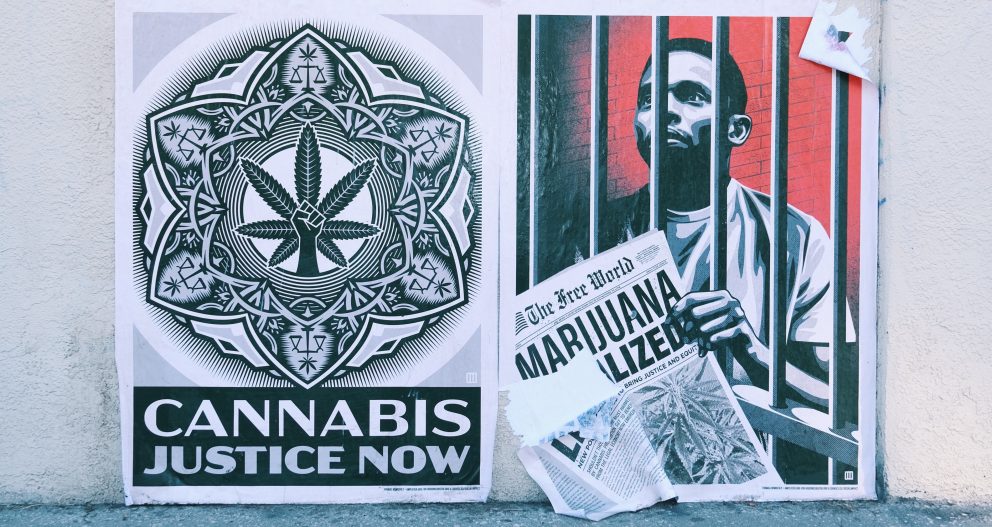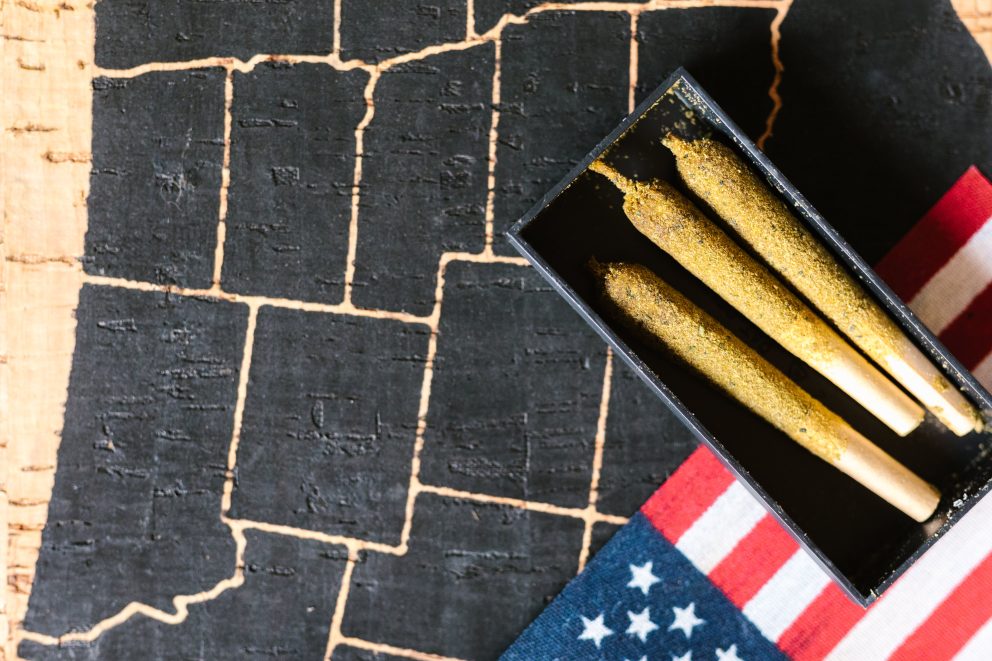
What is the Difference Between Marijuana Decriminalization vs Legalization?

Photo by Ringo Hoffmann
Cannabis law in the United States is complex and nuanced while the push for legalization is one of our major political hot topics. While still technically federally illegal, many states have adopted their own approaches to managing marijuana ranging from full prohibition to full legalization. Where exactly does decriminalization fit into this debate?
While often conflated, decriminalization and legalization sound similar but are actually quite different. They may be used interchangeably, but they refer to vastly different and distinct policy changes that must be made by state governments. They have their own unique definitions, benefits, drawbacks and all shift states in various ways.
Understanding the key differences between decriminalization and legalization is important for understanding local cannabis law and maneuvering the complex landscape of cannabis reform. It can take years for states who’ve legalized cannabis to even open up their local markets to fully legal sales.
This post offers an in-depth look at these concepts, how decriminalization and legalization policies can differ in practice, implementation and where federal and state laws stand on marijuana.
At the most basic level, decriminalization removes criminal penalties for possessing cannabis. It’s often relegated to small amounts that cover personal use. Meanwhile legalization establishes a regulated system for the legal cultivation, sale, and use of cannabis within the state.
Let’s dive deeper into these two similar but vastly different legal concepts.
Apply for a Medical Marijuana Card Online Today
Join over 100,000 patients who have chosen Green Health Docs as their medical cannabis doctors. We have a 99% approval rate and offer a 100% money back guarantee!
What Does Cannabis Legalization Mean?
Legalizing recreational or medical cannabis shifts the legal status of cannabis. It allows adults over 21 to obtain, consume, and even grow cannabis legally either for personal or medical reasons respectively. Most states who have legalized cannabis for recreational use regulate marijuana similarly to alcohol or cigarettes.
With legalized cannabis, licensed businesses like dispensaries and producers can cultivate and sell cannabis commercially to adults, with state sales taxes. There are rules around packaging, testing both for cannabinoid content and chemical remnants and with proper labeling and dosages.
Additionally, folded into legalization legislation, adults can legally possess certain quantity limits set by each state. These can vary from recreational and medical consumers. Common possession limits can range from 1 to 2 ounces of flower and 5 to 15 grams of cannabis concentrates.
Part of what makes cannabis legalization such a complex hot topic is that there must be changes to laws governing driving while intoxicated, an establishment of an entirely new industry, and assurance that the state gets a cut of the whole crop of cannabis consumption.
States often have to establish departments or agencies to issue licenses to dispensaries and cannabis venues like cafes. They set regulations for social consumption, and must establish legal protections against discrimination in housing, education or employment for marijuana use.
Legalization essentially converts cannabis from a controlled substance to a lawful consumer product, despite it remains illegal on the federal level. Many states will start off by introducing a medical marijuana program and when successful states will progress to recreational legalization. Currently, there are only 4 states in America without some form of legalized cannabis or decriminalization laws. What makes decriminalization different?
What Does Marijuana Decriminalization Mean?
Marijuana decriminalization sounds like legalization but legalese can often be counterintuitive. Rather than establishing legalization, decriminalization removes the charges and threat of jail time for low-level cannabis crimes.
Legally, there’s a distinction between personal use and intent to distribute. With cannabis as a controlled substance possession can often be a felony carrying mandatory jail time. Part of the push for decriminalization is that the “war on drugs” often unfairly targeted people of color.
The American Civil Liberties Union recently reported that “Black people are 3.64 times more likely than white people to be arrested for marijuana possession” despite comparable usage rates. Despite legalization there’s still major issues with racial disparity in criminal charges.
A 2021 analysis of New York City’s arrests found 94 percent of marijuana arrests were people of color. After Virginia legalized cannabis marijuana arrests dropped but Black adults still accounted for nearly 60 percent of marijuana-related cases before the state’s general district and circuit courts.
Decriminalization efforts have often tried to rectify this. Decriminalization laws replace arrests, criminal charges, and jail time with a fine or requirement to attend a brief drug education course. Some states have had mandatory jail time or had people lose their driver’s license for simple cannabis charges which often feels cruel and unusual considering cannabis is getting legalized across the country.
Decriminalization often reduces minor cannabis possession to a civil infraction or ordinance violation instead of a criminal misdemeanor. States will establish affordable fine amounts ranging from $25 up to $500 instead of jail time. Fines can even get waived by completing drug education.
A major component to decriminalization is establishing the legal quantity limits that a civilian can carry of cannabis without facing heavy charges. These can range from half an ounce to two ounces with anything larger potentially considered with an intent to distribute meaning illegally selling cannabis.
Again, even in states with legalized cannabis, civilians are not legally allowed to sell or distribute cannabis. In states or even cities that have decriminalized cannabis, it still remains illegal like it does federally.
This does not introduce ways to supply residents or open up retail sales. Cannabis consumers may still buy weed illegally or bring it in from states where cannabis has been legalized. Decriminalization simply eases the penalties around possession. This is often the first incremental step towards any legalization. Are there any more differences between the two?

Photo by Mike Von
Key Differences Between Legalization And Decriminalization
While with cannabis reform debates the lines between legalization and decriminalization can get blurred legally the two are vastly different.
Decriminalization is often simple because it simply involves reforming the penalties for marijuana possession and a few line changes to those laws. It’s more a simple legal reform and some states’ major cities have decriminalized cannabis within their city limits. This can often sway states with more conservative cannabis attitudes.
Legalization is much more complex. States will often dip their toes into the legalization waters by introducing medical marijuana or a low-THC medical program. With legalization states must write new legislation to establish a regulated market for the licensed cultivation, testing and sales of cannabis products.
Untested cannabis products can cause a public health crisis and mismanaged or mislabeled cannabis products can put people at risk of being too high. States must establish a cannabis program, agency, or decide which government agency or program will manage marijuana sales and bureaucracy in the state. It can be folded into the alcohol and tobacco regulation, drug prescription management, or as an offshoot of their existing medical marijuana program.
At the base level, decriminalization only lifts punishments around cannabis, while legalization actively approves legal cannabis use within the state. Delays to legalization can often be how the state will regulate both the supply, distribution, and use of cannabis for medical or recreational purposes.
Is Weed Federally Decriminalized?
No, weed still remains federally illegal. The possession, sale and use of cannabis remains illegal under the Controlled Substances Act. Cannabis is classified as a Schedule I illegal drug alongside heroin and LSD due to what the law defines as a “high potential for abuse” and lack of recognized medical value. That can seem strange and outdated considering cocaine and crystal meth are both considered Schedule II substances. Go figure.
Lawmakers have attempted to introduce federal legislation to decriminalize cannabis. There have been multiple versions of The Marijuana Opportunity Reinvestment and Expungement (MORE) Act in 2019, 2020, and 2021. The latest version of this bill passed a critical House vote in 2022.
The law proposes removing cannabis from the controlled substances list and expunging many past weed convictions across the country. This is essentially what many states have done city or statewide with their own decriminalization efforts.
In October 2022, President Biden made a historic executive order that federally pardoned all U.S. citizens and residents previously convicted on simple marijuana possession charges under federal or Washington D.C. law.
While this did not make a major change it did impact over 6,600 Americans and sent a message about Biden’s position on repealing federal marijuana prohibitions and potential for federal reform.
Legality Of Cannabis By State
Marijuana reform in America has largely been managed at the state level. There’s now a complex network of cannabis policies throughout the 50 states and American territories that can be divided into seven different categories:
- Full Recreational Legalization: Retail sales open to adults over the age of 21. Possession is allowed and in some cases home cultivation is permitted.
- Medical & Recreational Laws: Legal medical markets exist, adults of age can purchase cannabis and there may be civil penalties for not-quite legal use.
- Legal Medical Programs Only: Dispensaries only serve registered medical marijuana patients.
- Decriminalized Personal Use: Civil fines exist instead of criminal charges
- Only CBD Products Are Legal: Strict laws on cannabis except hemp-derived CBD which is available for patients or adults.
- De Facto Decriminalization: Misdemeanor charges seldom lead to jail time or are not actively enforced.
- Full Criminalization: Cannabis remains wholly illegal for any purpose.
State laws vary from year to year and many states are dipping their toes into cannabis either with state-sanctioned CBD or low-THC programs or greater decriminalization efforts.
It’s also worth noting that thanks to the 2018 Farm Bill products made from legal hemp, which is legally defined as any cannabis plants that contain less than .3% THC, essentially federally legalized CBD products as well as delta-8 and delta-10 THC products. However, many states have stepped in and amended their laws to directly regulate the sale and distribution of those products.
Also, it’s important to be cautious with those products because without adequate regulation these products can potentially expose consumers to harmful chemical remnants from the THC extraction and conversion process.
Also, since this is regulated on the state level, it’s important to confirm that these products are legally available to residents and can be legally purchased. State marijuana laws also keep evolving from year to year, with decriminalization often preceding any attempts for full legalization.

Photo by RDNE Stock Project
States That Decriminalized Weed
Over half of the United States has adopted some form of cannabis decriminalization so far. At minimum, 26 states and Washington D.C. have laws imposing civil fines rather than misdemeanors or felonies for first-time marijuana possession:
- Alaska
- Arizona
- California
- Colorado
- Connecticut
- Delaware
- Hawaii
- Illinois
- Louisiana
- Maine
- Maryland
- Massachusetts
- Michigan
- Minnesota
- Mississippi
- Missouri
- Montana
- Nebraska
- Nevada
- New Hampshire
- New Mexico
- New York
- North Carolina
- North Dakota
- Ohio
- Oregon
- Rhode Island
- Vermont
- Virginia
- Washington
- Washington D.C.
Again, decriminalization is not always associated with legalization. Alaska, Mississippi, Missouri, and North Dakota all maintained decriminalization despite lacking a medical or recreational legalization framework.
The laws are complex and many of these states may seek to expand their legalization to medical or fully legalization and other states without decriminalization efforts may have a medical framework in the works.
There are only four states where cannabis remains wholly illegal Idahol, Wyoming, Kansas and South Carolina.
These details are as of November 23, 2023.
States That Legalized Weed
Marijuana legalization began with California legalizing medical marijuana in 1996 and started gaining momentum in the mid-2010’s after Colorado and Washington became the first two states to approve recreational cannabis sales. New York and California legalizing recreational cannabis were also major states that shifted the general dialogue on cannabis reform.
Here are the states allowing retail marijuana sales to adults as of late 2022:
- Alaska
- Arizona
- California
- Colorado
- Connecticut
- Delaware
- Illinois
- Maine
- Maryland
- Massachusetts
- Michigan
- Minnesota
- Missouri
- Montana
- Nevada
- New Jersey
- New Mexico
- New York
- Ohio
- Oregon
- Rhode Island
- Vermont
- Virginia
- Washington
- Washington D.C.
Additionally, all but the 3 mentioned states have established some medical marijuana program or decriminalization effort. Based on 2020 census data 8.3 million people legally use medical marijuana. The success of medical marijuana helps grease the wheels for larger state conversations involving issues like public health, tax revenue, social equity, youth access, road safety, and more which all must be factored into any conversation regarding legalization.
Final Thoughts
Sadly, there is no turnkey solution to legalization even if the federal government legalized cannabis tomorrow. There’s an overlapping patchwork of laws governing decriminalization and legalization that vary from state to state.
Clearly distinguishing between these terms is so vital to properly support cannabis reform. The implications of each differ substantially both for cannabis consumers, citizens, and the state government at large. For the legalization debate to progress, more residents must become aware and involved to understand where their state laws currently stand, how they want them to change and how federal reform could change the landscape.
If you’d like to exercise your rights to medical marijuana in your state, get help from Green Health Docs to streamline the process and find a state-approved physician in your area.
 This article has been reviewed by Dr. Anand Dugar, an anesthesiologist, pain medicine physician and the founder of Green Health Docs. Graduating from medical school in 2004 and residency in 2008, Dr. Dugar has been a licensed physician for almost 20 years and has been leading the push for medical cannabis nationwide.
This article has been reviewed by Dr. Anand Dugar, an anesthesiologist, pain medicine physician and the founder of Green Health Docs. Graduating from medical school in 2004 and residency in 2008, Dr. Dugar has been a licensed physician for almost 20 years and has been leading the push for medical cannabis nationwide.
